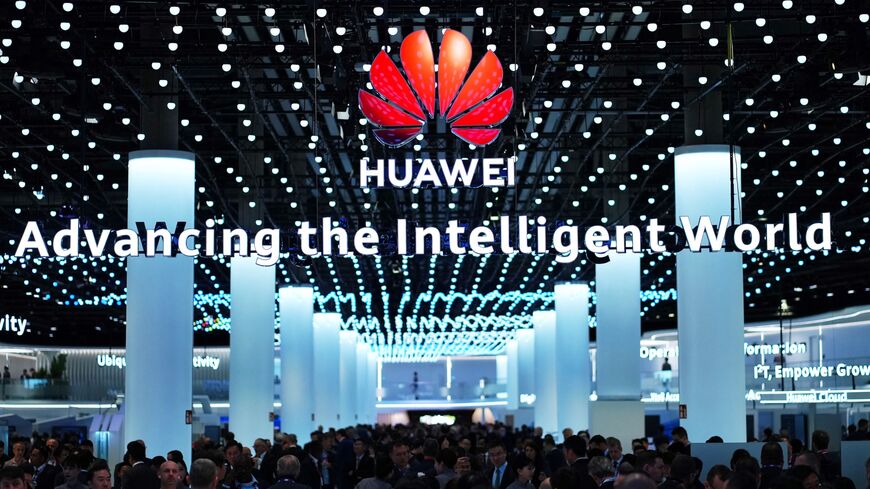
From phones that can detect deepfake scams to autonomous intelligent vehicles, the disruptive potential of artificial intelligence (AI) took center stage as Mobile World Congress Shanghai kicked off on June 26.
The jampacked connectivity industry conference saw some of China’s biggest companies gather to showcase their latest products and visions for an AI-driven future.
Smart device brand Honor unveiled technology on Wednesday that it claims can detect deepfake scam calls and warn the phone’s owner in real-time. Deepfake scam calls, where fraudsters manipulate images, sound, or video of a real person as part of their con, have been flagged as a growing risk as the use of generative AI becomes more prevalent.
In February, a Hong Kong finance worker transferred US$26 million to fraudsters who presented themselves as his colleagues on a video call. This incident highlighted the potential dangers of deepfake technology. In an Honor demo video, a man used a convincing AI filter to alter his appearance for a video call, before a pop-up message on the victim’s phone appeared, warning that it was likely a face swap.
Honor’s new software, which the company says will be available on its devices this year, uses AI to analyze elements like eye contact or lighting frame by frame, “to identify flaws that are imperceptible to the human eyes” in around three seconds. Honor’s CEO George Zhao told the audience that he believed on-device AI “has the potential to empower users” and address concerns around authenticity that many have raised about AI.
Whatever the inherent risks, high-profile speakers made it clear that they thought the AI revolution was unstoppable. “AI needs to be omnipotent; it needs to be everywhere,” said Huawei’s Executive Director of the Board, David Wang. He pointed out that the continued success and expansion of AI depended on telecom networks – particularly 5G and its successors – keeping pace.
Ensuring that AI’s associated infrastructure continued to develop was a point made by other delegates as well. In addition to networks, another issue, according to one exhibitor, was processing power and heat. “One of the challenges that AI has is how do you get all that processing (energy) on devices when the consumer wants them smaller and smaller,” said Sue Ryan, vice president of marketing at Frore Systems. The company’s solution is AirJet, a cooling device in the form of chips, the thinnest of which is 2.5mm.
While AI has been used in the background of much of the connectivity sector for years, “it really feels like we’ve moved from the passenger seat to the driver seat,” said Lara Dewar from organizers GSMA to attendees. For some exhibitors, this was quite literal, with multiple AI-using cars on display as the Internet of Things (IoT) spreads further into the auto sector.
| Highlight | Description |
|---|---|
| Deepfake Scam Detection Technology | Honor unveiled real-time deepfake scam call detection technology. |
| AI and Telecom Networks | Huawei emphasized the necessity of advanced telecom networks for AI expansion. |
| Processing Power Solutions | Frore Systems introduced AirJet, a cooling chip for high processing power in small devices. |
| AI in Automotive Sector | Exhibitors showcased AI-integrated vehicles, demonstrating the IoT’s reach into the auto sector. |
The discussion on AI did not stop at telecommunications. The conference also featured insights into how AI is transforming various industries, including finance, healthcare, and manufacturing. High-profile speakers and industry leaders emphasized the importance of innovation in maintaining a competitive edge and addressing global challenges.
- Financial Security: AI’s role in enhancing security measures, such as fraud detection and risk management in banking.
- Healthcare Advances: The use of AI in diagnostic tools and personalized medicine, promising improved patient outcomes.
- Manufacturing Efficiency: AI-driven automation in manufacturing processes, leading to increased efficiency and reduced costs.
As the AI revolution progresses, it brings both opportunities and challenges. The potential for AI to reshape industries and improve quality of life is immense, but it also raises important questions about ethics, privacy, and the digital divide. Speakers at the Mobile World Congress Shanghai highlighted the need for regulatory frameworks and international cooperation to ensure that AI development benefits all of humanity.
In conclusion, the Mobile World Congress Shanghai 2024 showcased the incredible advancements in AI technology and its potential to transform various sectors. From deepfake detection to AI-powered vehicles, the innovations presented at the conference underscored the importance of continued investment in AI research and development. As AI becomes more integrated into everyday life, addressing the associated risks and challenges will be crucial to harnessing its full potential.
Featured Image courtesy of AI-Monitor
